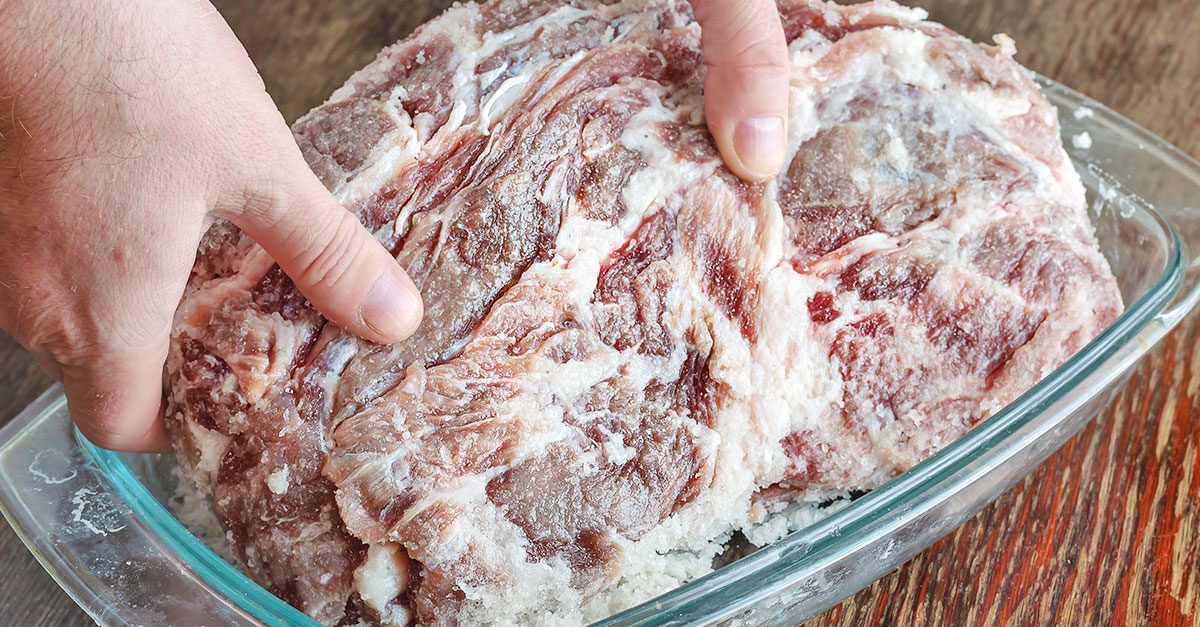10 Ways to Prevent Common Food Flops!
No one like a cooking failure. Whether it’s a sunken cake, or burnt rice, it’s a discouraging result if you’ve spent hours to create a culinary “masterpiece” only to be let down in the end. And no matter how good you are in the kitchen, it happens to all of us. Sometimes it’s due to a lack of attention (perhaps you’re watching tv while cooking) or perhaps you’re simply distracted. Whatever it is, we have the tips to help you!
;Resize,width=742;)
Don’t freak out when the next kitchen flop happens. We have a few tips and tricks that will help you along the way. Your kitchen blunders will soon be a thing of the past!
What to do if your food is too salty?

Don’t worry, there is a solution! If you’re making a soup or stew, you can add potato cubes. They will absorb some of the saltiness, and will also thicken the stew. You can also add a dash of lemon juice, which will balance out the saltiness. It works like a charm!
You overcooked the meat!

What now? With a quick change in your recipe, you can salvage your overcooked meat. Simply shred the meat with a fork (or slice into small pieces), and add a delicious sauce. Serve over a bed of rice or mashed potato. You can even use it as a filling for sandwiches! No more tough meat.
You’re always left with limp, colorless veggies.

If this is you, then you’re probably boiling your veggies, and in 2020, we simply don’t do that anymore. Rather steam your veggies or cook them for a few minutes in the microwave. You can also sauté veggies in a skillet with a bit of butter and seasoning. Yum!
Your food tastes bland.

First make sure that you seasoned your dish properly (give it a sprinkle of salt and pepper). If the taste is still bland, you might need a bit of acidity. Try adding a squeeze of lemon, or a dash of vinegar. It might be just what your dish needs to be “lifted”. You can also add tomatoes to a dish, as they are somewhat acidic.
Your meat is running all over the plate.

This means you haven’t rested your meat enough. After cooking, the meat needs to be rested, to allow the juices to run back into the meat (which means it won’t end up on your plate). Cover freshly cooked meat lightly with aluminum foil and leave to rest for 5-10 minutes.
Your garlic burns too easily.

Garlic does not need a long time to cook, so if you add it to a hot pan, it will start to burn almost immediately. Cook your onions first (and other vegetables if using), and only then add your garlic. Adding salt while cooking will also help them to release enough moisture and prevent burning.
You’re scrambling in the kitchen.

If you’re always losing your marbles in the kitchen, then it’s time to get organized. Read through your recipe, get everything you need and place them on the counter, ready to use. This means they are all within reach and you won’t have to rummage through a cupboard in search of the elusive soy sauce.
Your veggies are not all cooked.

If you made a stew, and some of the vegetables are still undercooked, you might be chopping them in random sizes. To make sure that all your veggies cook evenly, make sure that they are cut in the same size. This will prevent overcooked veggies mixed with undercooked ones!
You’re sure the dish was fine but it is still burnt!

If you’re using an electric stove, then it’s important to note that the stovetop stays warm LONG after it’s been switched off. So you can cook a dish perfectly, but if you don’t move the skillet from the hot plate, it will continue cooking and will either dry out or even worse, burn!
You want to make a stir-fry but end up with a stew.

To make a delicious stir-fry, you need to create a sear on the vegetables and meat you’re frying. And to do this, you must make sure not to overcrowd your pan. This will cause the release of stem, and you will end up with stewed, soggy vegetables. Rather cook the food in small batches, and set aside.
;Resize,width=767;)
;Resize,width=712;)
;Resize,width=712;)
;Resize,width=712;)
